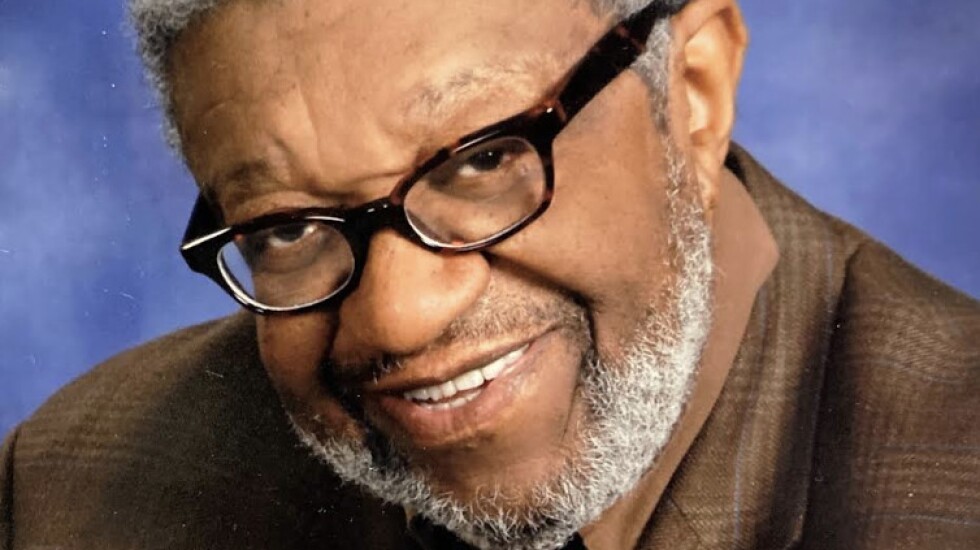
In the 1980s, Finley C. Campbell demonstrated against neo-Nazis in Marquette Park — where a group of white supremacists had established its headquarters.
Mr. Campbell, a longtime resident of Hyde Park, where he was a member of the First Unitarian Church of Chicago, helped found the International Committee Against Racism in the 1970s and took part in planning several Marquette Park demonstrations.
“It was very exciting, to say the least,” said his wife, Roberta Lammers. “We were surrounded by police, and we didn’t know what would happen. But we marched in and marched out OK.”
She said Mr. Campbell was hit with birdshot while demonstrating against the Ku Klux Klan in Tupelo, Mississippi, in 1979.
He also planned and took part in demonstrations against academics who suggested that the gap in intelligence test scores between Black and white students might be rooted in genetics.
“He really thought that multiracial unity was the key to changing the world and creating a world where we join together and do all kinds of things based on our common interests, not on the color of our skin,” his wife said.
She said Mr. Campbell died Aug. 18 of lung cancer. He was 88.
Mr. Campbell was born in South Carolina and raised in Detroit. He studied English and American literature at Morehouse College in Atlanta. He did part of his postgraduate studies at the Sorbonne in Paris, where he met his first wife, Liliane, who was from Switzerland.
The pair later returned to Atlanta, where Mr. Campbell had accepted a teaching position at Morehouse. He forged documents that claimed his new bride, who was white, was a light-skinned Black woman to get around a state law that prohibited mixed-race marriage.
The assassination of the Rev. Martin Luther King Jr. “transformed his life,” Lammers said.
“Finley was part of a group of people who kept Atlanta from burning and ensured that a multiracial group was able to attend King’s funeral,” she said.
Before joining the Unitarian church, Mr. Campbell was an ordained Baptist minister.
“He was of the opinion that it’s not enough to say, ‘I believe in God, and God will save us.’ You’ve got to be on the streets and be active and fight for anti-racism,” said his friend Simon Piller, a semiretired physician who works with Cook County Health.
“He was very good on a bullhorn, so he was often a main speaker at demonstrations,” his wife said. “He was able to speak in a way that people understood and often reacted very positively toward.”
In 1969, he earned his doctorate from the University of Chicago before taking a teaching job at Wabash College in Crawfordsville, Indiana, where he was a founding faculty member of the Malcolm X Institute.
He later ran for governor of Indiana on the Peace and Freedom Party ticket.
“A white guy took it upon himself to be his bodyguard and let people know if they wanted to get to Finley they’d have to get through him first,” his wife said. “He maintained that racism hurt white workers because it divided the working class and didn’t just hurt the people at the bottom of the heap but the whole heap, and the only way for society to move forward was to overcome those racial divisions.”
Mr. Campbell also worked as a professor at the University of Wisconsin, the University of Illinois Chicago and DeVry University, where he taught literature and English composition for about 20 years before retiring in 2007.
His motto was: “Do what you can, while you can.”
“Our social group has always been a multiracial group of people,” his wife said. “It was something he thought was the normal way of the world. It came very naturally, but he could also function in a segregated society where he was the only Black person in the room.
“I took him camping once in Minnesota’s Boundary Waters, and people coming over those portages would do a real double-take when they saw a Black person.”
Mr. Campbell loved classical music and going to performances by the Chicago Sinfonietta.
In addition to his wife, Mr. Campbell is survived by his daughter, Paulette Campbell; sons Phillip and David; and three grandchildren.
A celebration of his life is being planned.







